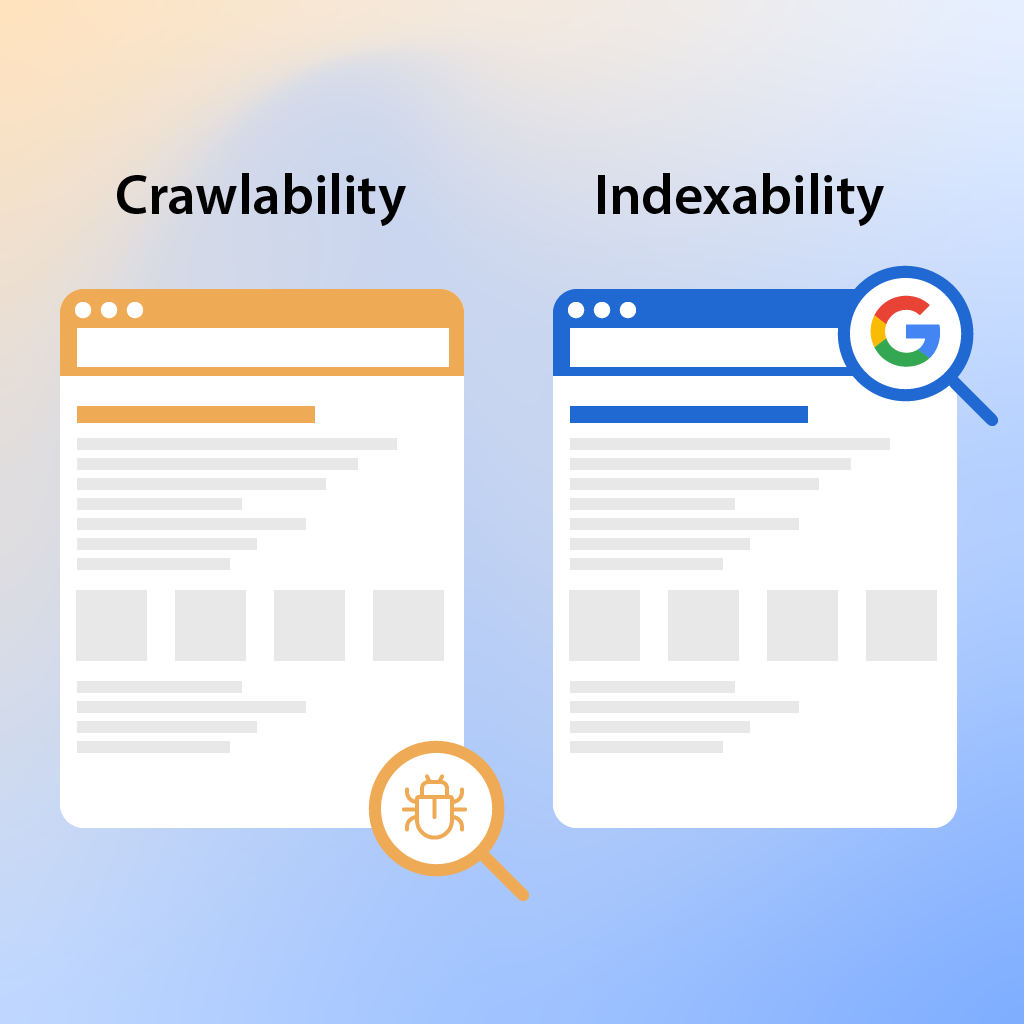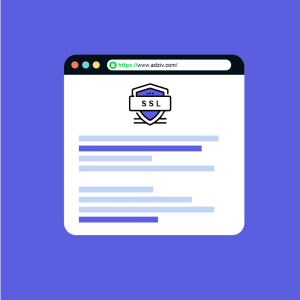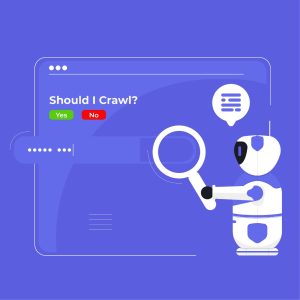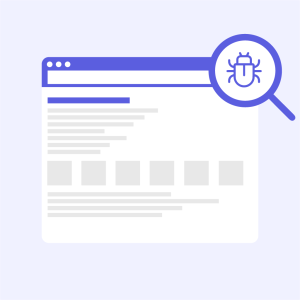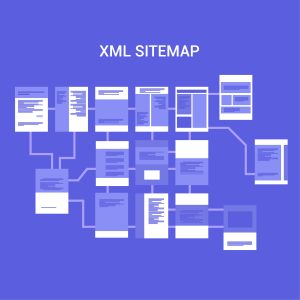Table of Content
Do you know how to rank a website? If you aren’t an expert, you can’t find out the techniques to rank a website. Hiring a professional will be your ultimate preference in such a situation. Search engine optimization is a technical process that requires a good understanding of keywords and an effective link-building strategy. Crawlability and indexability in SEO are also important for improving the ranking of a website. No matter if you are an expert or not, you have to find reasons to rank a site.
What is the first thing you think about when ranking a website? Search engine optimization improves the ranking of a website and improves brand awareness as well. You need a good plan to start an optimization project. Being an expert, it is your utmost responsibility to set up title tags, header tags, and descriptions with the addition of great visual content. Among all techniques, you have to keep in mind indexing.
Are you aware of crawlability and indexability? Unfortunately, many web owners are not aware of this term. It is a technical term that only professionals understand. The lack of indexing may lose the ranking of your site, so you have no chance to skip this process. Let’s talk about the impact of crawlability and indexability!
What are Crawlability and Indexability?
Crawlability and indexability is a technical term that has amazing importance and value in the search engine optimization process. Crawling is a process of indexing content with the help of search engine bots and spiders. Page indexing is a must in SEO that sets the direction of your campaign. Hence, you upload content and images that are indexed and crawled by search engine bots.
Crawlability is the ability of search engines to crawl the content. Web crawlers access the web pages and links over search engines. The broken links are not easy to crawl, so keep your site away from crawlability issues.
Therefore, fix broken and dead links to see tremendous results. For this, you need to keep content genuine and specific. Indexability is the process of analyzing pages before indexing takes place. Crawling becomes smooth if you have done indexing of all the pages.
How do Crawlability and Indexability Affect SEO?
Here are some important points to know that how crawlability and indexability affect SEO!
Site Structure
Site structure is the most important thing to consider for SEO, as you need to focus on the results when developing a site. The structure matters for the entire optimization process. If your web pages are nicely designed having well-placed content, it is easier to crawl. Search engines find it easier to crawl. On the other hand, a site with poor structure is not easy to crawl.
Internal Link Structure
Internal link structure is also a top-notch factor that can affect SEO. Once again, it depends on the link structure that improves crawling and indexing. A poor site structure leads to several problems when it comes to crawling. Make sure, the content is not missing and the site structure is fine.
Broken Links
If you want to rank your website, always make sure that you have fixed all the broken links. Looped redirects lead to bad results, so broken pages, and links should be fixed to improve crawlaility.
Server-Related Problems
Not only do you need to fix broken links, but you must also work on server errors. If your site is facing server-related problems, you should fix them to improve the crawling process.
Technology Factors
Technology factors can play a highly influential role in improving the structure of a site. Make sure, technology factors should be given importance for improving the site structure and crawlability issues. Sometimes, technology creates a mess when your devices are out of order. Therefore, fix all the scripts before you optimize the website.
Blocking Web Crawlers
Many times, experts block web crawlers access without knowing its impact. Indeed, it causes problems and deliberately you should not block the access. Don’t restrict public access, as you should block particular pages rather than block your website. It can reduce the crawlability, so keep in mind this point.
How Can You Make Your Website Easier to Crawl and Index?
If you are serious about improving the ranking of a site, the first and foremost thing is to focus on crawlability and indexability before you include keywords and plan link building strategy. Here are the steps you may follow to improve crawlability!
Submit Sitemap to Google
There is no chance to ignore submitting your site to Google. It is a nice way to tell Google about your content. Hence, it works through alerts and updates that improve the crawlability of your site. Search engines work fast when you include sitemaps using Google Console.
Improve Internal Links
Internal linking is so crucial for boosting crawlability. If you want to crawl your site quickly and efficiently, you need to improve internal links first. Internal linking is so essential for SEO, especially for making the website index-friendly. It all depends on your content strategy that makes a difference. Use appropriate internal links to make it easier to crawl.
Update Content Regularly
If you have created a blog section, it’s a great strategy that you may follow to attract more visitors. The more you include content, the more you invite visitors because of a unique and engaging content strategy. The content is what can surprise your audience, so keep updating your content for the sake of building a potential audience. Create relevant blog sections and update them regularly to make difference in the rankings.
Avoid Updating Duplicate Content
While updating content, make sure you don’t upload duplicate content. Always avoid updating duplicate content, as it can put a negative impact on SEO. Crawling becomes difficult when you upload duplicate content on your site. Google never appreciates this type of content strategy and drops down the rankings.
Increase the loading speed of your web page
The most important thing is to increase the loading speed of your website. If you want to improve the crawlability, the speed should be higher, or else visitors will leave the site. The only way to reduce bounce rate is to plan internal linking and get a perfect hosting package to enhance the speed of your website. If your website has good speed, it ranks faster, and crawling becomes a smooth process.
What Are the Tools You Can Use for Improving Crawlability and Indexability?
Crawlability issues often create problems with your website that you can fix with the use of tools. The use of a log file analyzer can help you improve the crawling process. It helps to fix errors and crawling issues when you upload the access.log file to see the performance. It understands the process of log files when you allow bots to crawl your site. Without analysis, it is not possible to improve crawling and indexing.
The website audit is also a handy option to improve crawling. No matter if you conduct a quick audit or you do a detailed audit, you get to know about crawlability issues. Therefore, an SEO audit is the best and smart option to detect problems. With this, you can improve crawling when the scanning is done.
Conclusion
Conclusively, we’ve found some amazing tips to improve indexability and crawlability in SEO. The content plays a major role in improving the crawling factor, whereas keep updating content. Also, it improves the speed of your website and that’s what you need all. Moreover, Google tools improve crawlability when submitting sitemaps and paying attention to internal linking.
